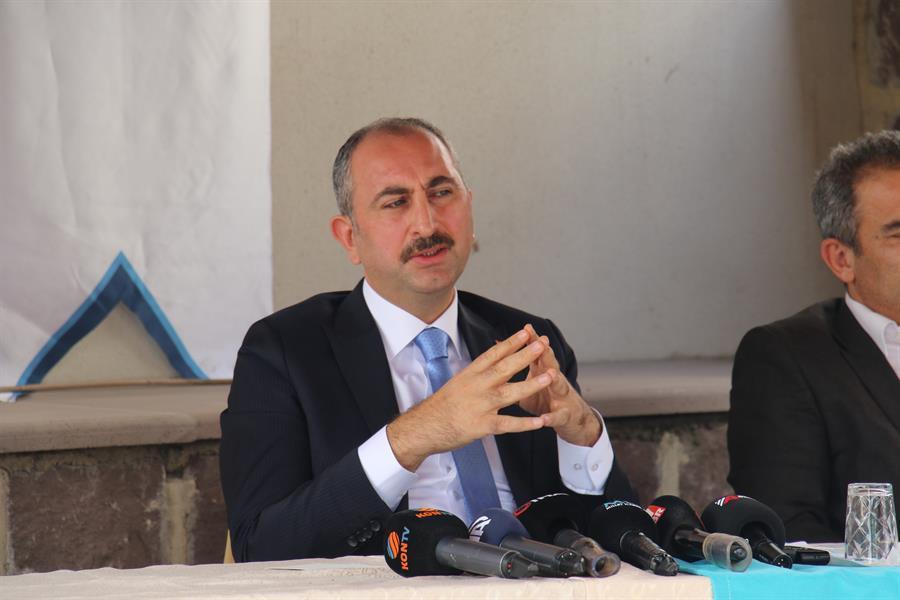
An interim decision issued by the European Court of Human Rights (ECHR) on the Turkish role in the ongoing Armenian-Azerbaijani clashes is political, Justice Minister Abdulhamit Gül has said, slamming the Euro court for not demanding information from Turkey.
“It’s a political verdict, and they have never sought information from us,” Gül told reporters in the Turkish capital on Oct. 8.
Gül’s reaction followed an interim decision taken by the ECHR on Oct. 6 upon the application by Armenia against Turkey. The court “calls on all States directly or indirectly involved in the conflict, including Turkey, to refrain from actions that contribute to breaches of the Convention rights of civilians and to respect their obligations under the Convention.”
“This is unacceptable and has no validity whatsoever,” Gül stressed, criticizing the court for issuing a hasty decision based on media reports.
Turkey has condemned Armenia’s attacks against the Azerbaijani territories and pledged its full support to the latter’s counter-offensive in a bid to liberate its lands from the Armenian occupation.
The justice minister did also respond to questions about an ongoing discussion over the restructuring of the Constitutional Court. “Any change can be made for the good sake of democracy and rule of law,” he said, stressing it can only be parliament who can do it.
The idea of undertaking structural changes about the top court came to the agenda after Nationalist Movement Party (MHP) Leader Devlet suggested that the current structure of the Constitutional Court was unsustainable. President Recep Tayyip Erdoğan also supported Bahçeli’s view.
Some recent verdicts of the court did irk the government, particularly Interior Minister Süleyman Soylu who criticized it for disregarding the country’s fight against terrorism.
When asked about these critics against the court, Gül said nobody and no institution was exempt from criticisms.